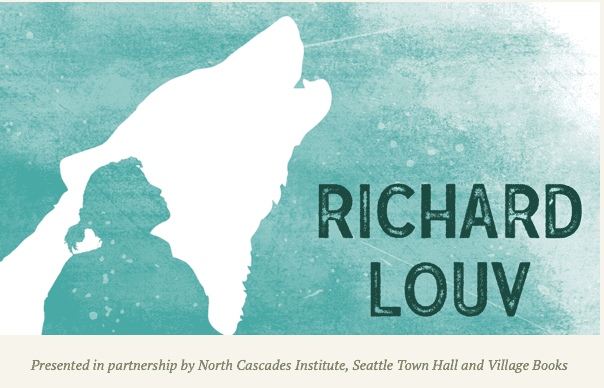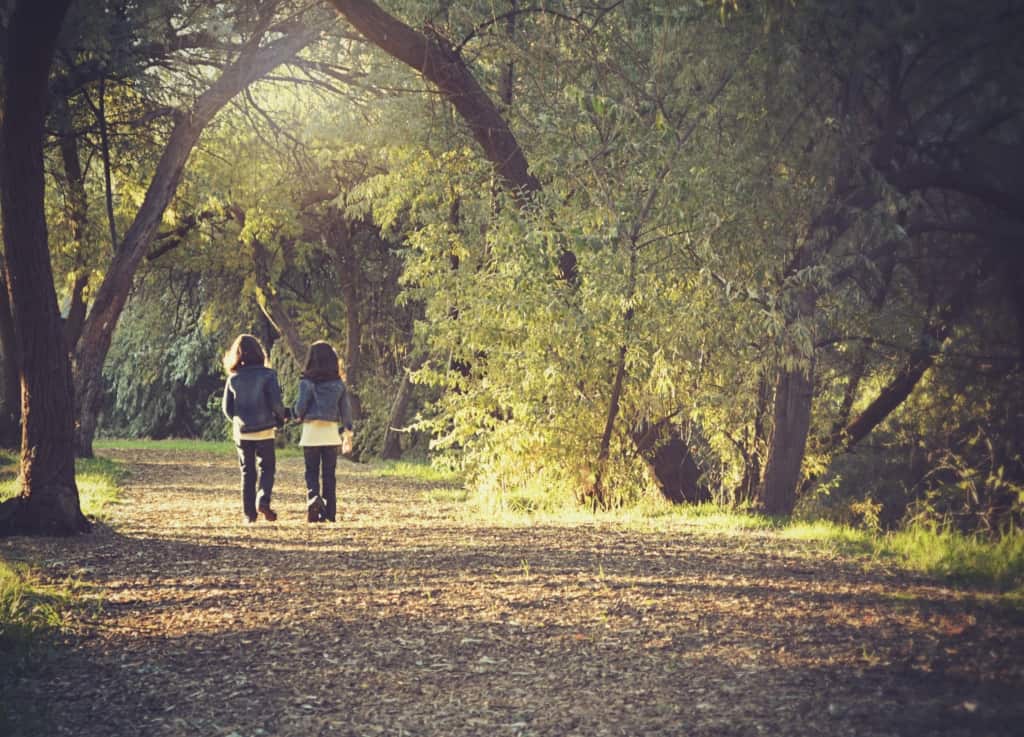
Richard Louv on “Our Species Loneliness”
At the same moment that social interactions among people are becoming more digital and less personal, there is an isolation of another kind forming: species loneliness—the gnawing fear that we are alone in the universe, with a desperate hunger for connection with other life. Believers in a personal God may feel they are not alone, and yet as we move away from nature, they too sense an absence. All of us are meant to live in a larger community, an extended family of other species.

The term species loneliness was introduced in a 1993 article in Environmental Ethics by Michael Vincent McGinnis, an author and editor of books about ecology and bioregionalism. Nearly two decades later, he writes, “Species loneliness in a wounded landscape moves us to want to restore our relationship with place and others, or to put it another way, modern humanity yearns to reestablish and restore an ecology of shared identity.” An individual or family cut off from positive social contacts with other people is more vulnerable to alcoholism, depression, bullying, and abuse and is more easily controlled. Cult leaders understand this too well. Likewise, our species’ vulnerability to all manner of pathologies grows with our distancing from other species. Without contact with other-than-human kith and kin, the family of humans loses comfort, companionship, and perhaps even the sense of a higher power, however one defines it.
This hypothesis is supported by over a decade of research showing the positive impacts of nature connection on individual human health and cognition, as well as the health of communities. This body of research is relatively new, and proponents of a new nature movement are taking it to heart. An increasing number of physicians—particularly pediatricians and psychologists—are no longer satisfied that pharmaceuticals and traditional counseling alone can reverse the social isolation, depression, and substance abuse experienced by so many people, especially young people. Some now write “nature prescriptions” to encourage families to spend more time out- doors, preferably in a natural setting. Parks with the most biodiversity have the greatest beneficial impact on human psychological health.

While green spaces can bring joy and reduce our stress, a deep connection to other animals has a special power to deliver us from our isolation, both as individuals and as a species. To a degree, some people are self-medicating with animals. Consider the dramatic growth in much of the Western world in the number of pets and the industries that surround them. Over the past decade in the United States, the growth in pet ownership has outpaced total household growth. Younger generations lead the pack: eighteen- to thirty-four-year-olds are the most likely to own a pet—and of young adults who don’t have a pet, a whopping 43 percent say they want one in the future.
One might ask: If our pet population is growing, why would someone need more contact with wild animals? Companion animals differ from us in ways that are easy to forget, and we tend to perceive them as part of our immediate family. To assume that pets and other domestic animals alone can fill the void of our species loneliness is like saying the only human social contacts we require are within our own nuclear family—that we don’t need our extended family, friends, or neighbors. The truth is, we humans need all the other-than-human friends we can get.
Like wind in advance of a storm, the approaching choices offer danger and possibility.
Richard Louv is the author of author of ten books, including “Our Wild Calling: How Connecting to Animals Can Transform Our Lives — and Save Theirs,” “Last Child in the Woods: Saving Our Children from Nature-Deficit Disorder,” “The Nature Principle,” and “Vitamin N.” He is Co-Founder and Chair Emeritus of the Children & Nature Network. In 2008, he was awarded the Audubon Medal. Prior recipients include Rachel Carson, E.O. Wilson, and President Jimmy Carter.


I want to go